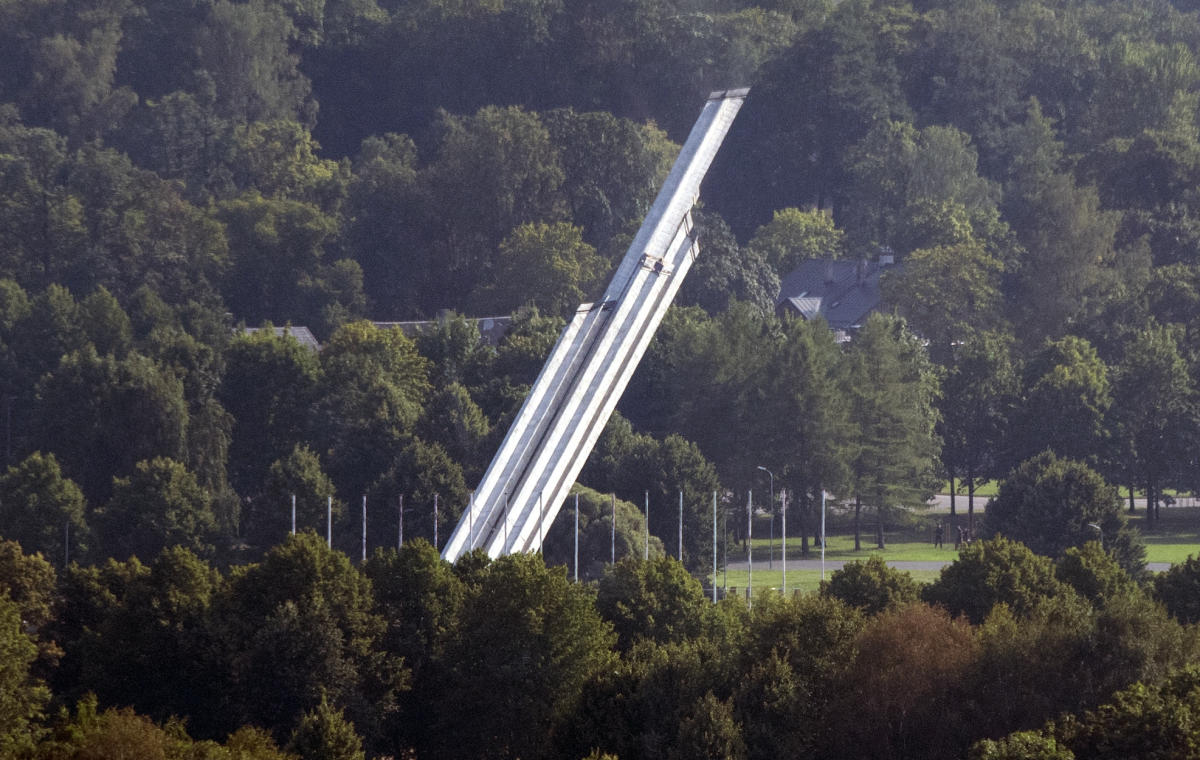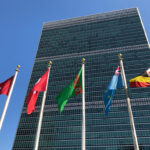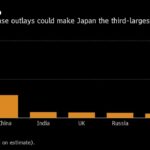
WARSAW, Poland (AP) — In the Latvian capital of Riga, an obelisk that soared high above a park to commemorate the Soviet Army’s capture of that nation in 1944 was toppled last week. It crashed into a pond to the cheers of those watching.
Days earlier in Estonia, a replica of a Soviet tank with the communist red star was removed by cranes and trucked away to a museum — one of up to 400 destined for removal. And in Poland, Lithuania and Czechia, monuments to the Red Army have been coming down for months, a belated purge of what many see as symbols of past oppression.
Russia’s war on Ukraine has given a renewed push to topple the last remaining Soviet monuments in nations that regained their sovereignty from Moscow more than three decades ago. These countries now belong to NATO and the European Union and are staunch supporters of Ukraine.
At the end of the communist era, when Latvia, Lithuania and Estonia regained their independence from the Soviet Union and Poland and its neighbors rejected Moscow-backed communism, those nations began renaming streets and purging the most hated symbols, including statues of Soviet founder Vladimir Lenin and other communist bosses. Many of these relics are now housed in museums.
In Warsaw, authorities in 1989 quickly toppled a monument to Felix Dzerzhinsky, a Polish aristocrat who organized the Soviet secret police after the 1917 Bolshevik revolution. Under his rule, the Cheka, the forerunner of the KGB, was responsible for a wave of terror.
Such changes followed the reforms of Mikhail Gorbachev, the last Soviet leader, who died in a Moscow hospital on Tuesday at the age of 91.
But memorials to Soviet soldiers or their role in defeating Nazi Germany remained in many places, met with indifference or respect for the ordinary soldiers who died fighting Adolf Hitler’s brutal regime.
The war in Ukraine, however, has triggered memories of how some of those soldiers also raped local women and carried out other war crimes.
Krista Sarv, the research director for the Estonian History Museum, said after statues of Lenin and other leading communists were toppled in the 1990s, people could largely ignore the other memorials. But views changed suddenly after the Russian invasion of Ukraine on Feb. 24, and now the memorials “scream loudly about occupation and annexation.”
Karol Nawrocki, the head of Poland’s Institute of National Remembrance which is overseeing the removal of the monuments, says “before our eyes, history has become a living experience.”
“Dressed in the uniforms of the Russian Federation, with Lenin and Stalin in their heads and hearts, Russian soldiers ‘liberate’ Ukraine by murdering women, children and killing soldiers,” Nawrocki said.
“Let it be clear: There is no place in the Polish public space for any commemoration of the totalitarian communist regime and its people,” he added.
A 2016 decommunization law had already called for a purge of communist symbols and names, but some municipalities did not have the money for that, so the institute has stepped in to help. Since February, the Polish institute has identified 60 monuments for removal — and has toppled more than 20.
In Lithuania, a number of remaining Soviet memorials have been removed since the spring to little protest. But in Latvia and Estonia, which have sizeable Russian minorities, the removals have stirred greater emotions, with local Russians — and the Russian government — seeing it as an offense against their war heroes.
Dmitry Prokopenko, a Russian-speaking Latvian who opposed removing the Riga obelisk, said his grandparents fought and a great-grandfather died in the fight “for freedom against the Nazis.” To him, the memorial honored their sacrifice.
“Latvia is a land where Latvians and Russians live together,” he said. “I think that one part of the state, one part of the country, should respect also the rights of the other part.”
The Russian Foreign Ministry on Tuesday released a lengthy statement denouncing the demolition of Soviet monuments in the Baltic countries as “barbaric” and threatening Latvia, Lithuania and Estonia with retaliatory measures.
In apparent slap against Poland, Belarus last week reportedly leveled a memorial containing the graves of Polish wartime soldiers.
Polish officials declared that action barbaric, given that Poland has a policy of not disturbing the graves of Soviet soldiers. Rafal Leskiewicz, a historian with the Polish remembrance institute, explained “as Christians, we treat graves as holy ground. It doesn’t matter who is in the graves.”
In some cases locals support keeping Red Army memorials because of its role in defeating Nazi Germany. Some fear the erasure of historical memory, or see an affront to their own ancestors who fought alongside the Soviets.
In Poland’s northern city of Gdansk, there’s been a heated debate about a Soviet T-34 tank on Victory Avenue, and the city has decided not to remove it. The tank commander was a Polish lieutenant, and Polish soldiers played a key role in freeing the former German city of Danzig from the Nazis.
In an open letter, two descendants of wartime Polish soldiers expressed their indignation at the removal of monuments.
They recalled that Polish soldiers died fighting with the Soviets to free Poland from the Nazis and that the Soviet victory resulted in Poland receiving a swath of defeated Germany’s territory and cities including Gdansk and Wroclaw. They also noted it was the Red Army that liberated Auschwitz, Majdanek and many other Nazi death camps.
“Had it not been for the victory of Polish and Soviet soldiers in May 1945, Poland might not have existed at all,” said the letter by magazine editor Pawel Dybicz and historian August Grabski.
But many other Poles note that World War II broke out after Soviet Union and Nazi Germany agreed secretly in 1939 to carve up Poland and the Baltic states. Only after Germany betrayed and invaded the Soviet Union did the Red Army begin to fight the Germans.
Even before Russia’s war in Ukraine, the monuments have been a source of tensions.
In 2007, the relocation of a World War II monument of a Red Army soldier in Tallinn, Estonia, sparked days of rioting.
In 2013, an artist put up a statue depicting a Soviet soldier raping a pregnant woman next to the Gdansk tank. The unauthorized sculpture was quickly removed. After Russia invaded Ukraine, a different artist covered the tank with a large hand-sewn Ukrainian flag to protest what he called the “tyranny” of Russian President Vladimir Putin.
In March, as Poland was figuring out a timetable for taking down Soviet monuments, a resident of the northern city of Koszalin took matters into his own hands. He drove an excavator onto a cemetery and toppled the statue of a Soviet soldier being hugged by a girl.
Nawrocki says the official removal of Soviet monuments in Poland is progressing at “a very fast pace, but it is a matter that should have been settled long ago.”
___
Follow all AP stories on the impact of the war in Ukraine at https://apnews.com/hub/russia-ukraine.




